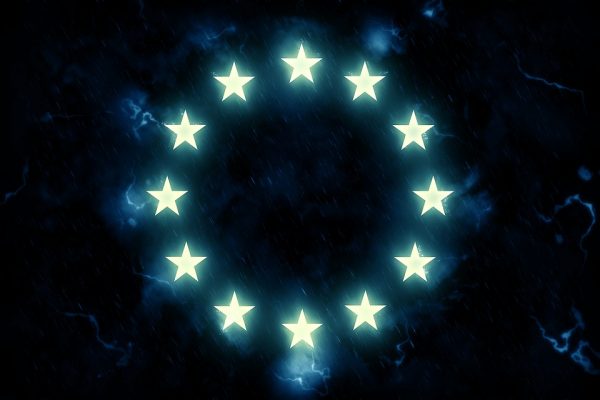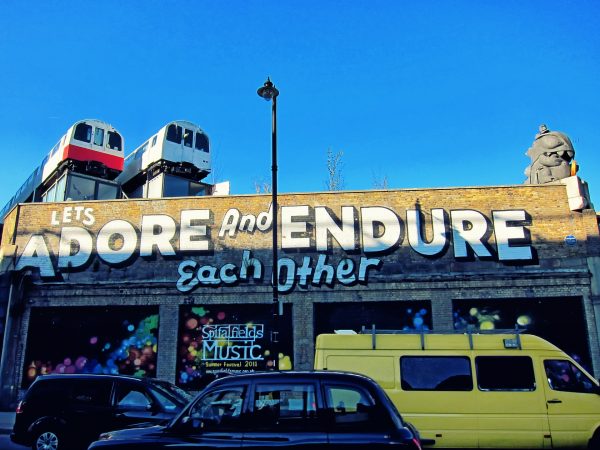
Shrinking Britain: a migrant’s view on the EU referendum
When I first moved to London it felt like my life had suddenly shrank. All the things that had been important to me until then pulled back to the background as I navigated my way through the challenges of adjusting to a new life. First came the awkwardness of not being able to communicate properly in English: the despair of trying to rent a room with a letting agent who would not speak slower irrespectively of how many times I asked her to, please. Then the frustration of booking an appointment for a National Insurance Number, mitigated only by the patience of the call handler who repeated her words over and over for me, a newcomer startled by her inscrutable inflection which I later learnt being a thick northern accent. Insecurity followed suit, felt under the scrutiny of the bank employee who let me open an account only after I had assured him beyond doubt that I would start a full-time job the following week, finally leaving ground to the overwhelming disorientation that pervaded me throughout the next months, as I tried to figure out how everything worked – from public transport to the subtleties of social interaction.
I was not new to this kind of experience: my family moved to Italy in 1992 to escape war in Yugoslavia, and I remember clearly how my parents struggled to find work and a landlord who would trust them enough to rent to them. I remember how their lives, too, seemed to shrink for years, as they battled the unbearable slowness of Italian bureaucracy and adjusted to the constant feeling of disenfranchisement and isolation guaranteed by life as a migrant in a small Italian town better known for its right-wing political views. I still remember vividly being observed and evaluated by the town’s inhabitants when my parents and their friends tried to recreate some sense of homeliness by drinking coffee after coffee (as it is custom in the Balkans) at the cafe in the town centre, talking and laughing loudly in their mother tongue. I also remember being excluded from the local children’s games because I didn’t know their rules and they didn’t have the patience to teach me. To this day, I am painfully aware of how many Italian uses are still unknown to my family and me despite having lived there for most of our lives, an incompleteness that testifies to the process through which we became Italian, not through the privilege of inherited customs but through the bumpiness of daily trial and error.

So, if you ask me, the initial experience of migration is best described as the feeling of your life narrowing, as your daily experience is reduced to a limited set of practical issues and uncomfortable feelings. But just like had happened to my parents in Italy, the process gradually reversed, and I eventually got to a stage where the full range of life’s experiences and feelings was available to me again. Today my life is richer thanks to my time in this country, and I can see that the initial shrinking I experienced was part of a process that eventually enabled me to look at the world through a wider, more complete perspective. I completed a Master degree in London, worked jobs in hospitality, academia and the charity sector, I got to know people from all over the world and made experiences that pushed me to reconsider my views and values. I came to appreciate the vastness of this city and the diversity of its inhabitants and became proud to be part of a society that values plurality and tolerance. Heck, I even learnt to understand northern accents.
If I was able to enjoy the challenges and rewards of life in this country, it was thanks to the privilege of European citizenship. If, as a child, I could participate to exchange programs that took me to England and Finland, it was thanks to projects sponsored by the EU to foster the movement of young people across its member states. I, too, see project Europe as limited and in need of change, but I hoped that over time we would see Europe improve and loosen its existing borders, rather than implode as new ones emerged internally. For all these reasons, when the result of the EU referendum was announced on the morning of the 24th, I felt truly devastated and could not shake off the feeling that the tide had turned in a direction ridden with dangers. Regardless of the long-term consequences that the decision to leave the EU will have on the UK, I can’t help but feeling that through this vote the British people have chosen to willingly narrow their lives. Within the country, there are many reasons to worry: job security may be jeopardised even more, Brits could loose their right to travel, work and live in Europe without visas, EU fundings to charities and research may be lost and there are concerns as to what will happen to human rights and worker’s rights once the protections afforded by the EU are taken away.

Nobody knows for sure what will happen once article 50 has been invoked and the negotiations have taken place; it may even be the case that the common market and the free movement of people will be, after all, maintained. But the problem is more fundamental: everyone who lives in this country knows that immigration has been the real issues at stake, and that the UK’s attitude towards diversity has been completely redefined throughout the referendum campaigns. The shock on my British friends’ and colleagues’ faces as they struggle to make sense of how this could happen testifies to the reluctance to accept that the values their country has long stood for have been so blatantly sidestepped, when not deliberately trashed, in the run up to the vote by both sides of the political debate. I listen and empathise as they, in what is probably a first for Britain, contemplate the possibility of their lives shrinking, through no fault of their own.
If we don’t learn the lessons of history, we are doomed to repeat them, they say. My friend’s shock reminds me inevitably of that of my parent’s generation when Yugoslavia started to fall apart: that the principles of cohabitation and diversity could be so readily abandoned in favour of nationalistic interests was for many Yugoslavs simply beyond comprehension, just as it seems to be for many Brits today. Europe is not perfect, just as Yugoslavia was not, but it seems to me that membership to a larger, supranational entity must entail a willingness to show patience to each other as we negotiate the rules of the game, accepting the bumpiness of the process that leads to the creation of a sense of belonging and community, imperfect but shared. As reports of racial abuse in the UK increase and the far-right across the continent is emboldened by the referendum result, I fear that Britain and Europe may be shrinking into smaller, more limited, versions of themselves. Watching the UK migrate away from Europe, I hold onto the hope that this process may reverse sometime soon.
Cover photo by Jamie Street / Unsplash
brexit, britain, EU, Europe, European Union, exclusion, featured, UK, united kingdom, Yugoslavia